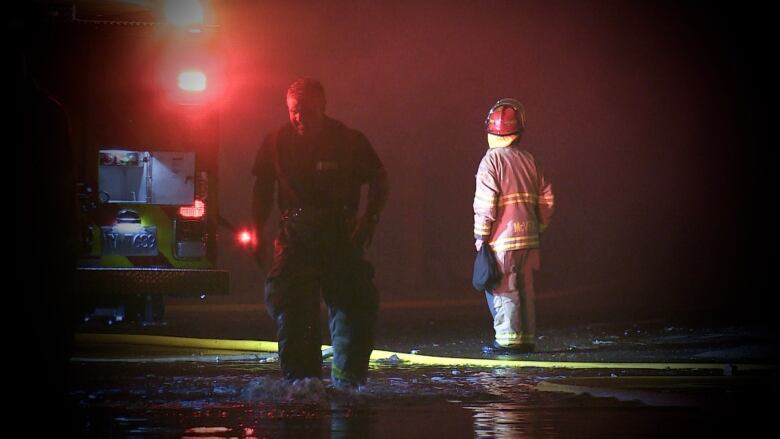No one knew retired firefighter 'Captain Bob' was struggling with PTSD. Now his peers are learning the signs
The union representing Richmond firefighters is extending PTSD training to retired members

Bob Taylor waspopular at the Richmond Fire Rescue. To many, even off the job, he was known simply as 'Captain Bob.'
"He was always larger than life. He'd come in, 'Hey boys' You know, [he was] there for a good time," said Jim Dickson, a firefighter who worked with Taylor for several years.
"Outwardly, you would never know he was struggling with any sort of mental health issue mind you we weren't looking either. It was not something you would talk about," said Dickson.
In mid-October, about a decade after retiring from the department, Taylor took his own life. The cause of suicides are rarely simple, but according to a family member, Taylor had been struggling with post traumatic stress disorder (PTSD).
With his death front-of-mind, other retired members of the department are now getting some valuable PTSD awareness training.

If 'Captain Bob' were an active firefighter in Richmondtoday, he would have had access to two days oftraining, organized by the union along with thedepartment. He would have joined his crew ingetting trainingon mental health awareness and resiliency.
But his career spanned a different era. According to Dickson, who serves as treasurer for the International Association of Fire Fighters (IAFF) Local 1286 and helps run PTSD awareness training, there used to be a different strategy for coping with traumatic calls.
"If you were lucky, you were relieved from duty, which then meant, 'Heyfree night to go hit the pub,'" he said. "It would be alcohol use, typically, some black humour.

"The last thing you were going to do was admit that that was still bothering you. You just put that down where all the other feelings went to die, and then you find that 30 years later perhaps that comes up."
The culture has changed. According to Dickson, that change is as recent as the last five years.
In an effort to reach retired members of the department, Dickson is organizing sessions at the union hall.
On Thursday, Dickson was preparing for as many as 30 retired firefighters he expected to fill the room.

Dickson said there was no way he couldget retired folks in for two days of PTSD training, mirroring what active members get, so he has condensed the material into a couple of hours. And he's thrilled with the level of interest the session has been getting.
"It really shows thewillingnessto embrace this idea that we are human, and that sometimes we need help," he said.
Where to get help:
Canada Suicide Prevention Service
Toll-free: 1-833-456-4566.
Text: 45645.
Chat:crisisservicescanada.ca.
In French:Association qubcoise de prvention du suicide: 1-866-APPELLE (1-866-277-3553)
Canadian Association for Suicide Prevention:Find a 24-hour crisis centre.
Follow RaffertyBaker on Twitter: @raffertybaker












_(720p).jpg)


 OFFICIAL HD MUSIC VIDEO.jpg)
.jpg)



























































































